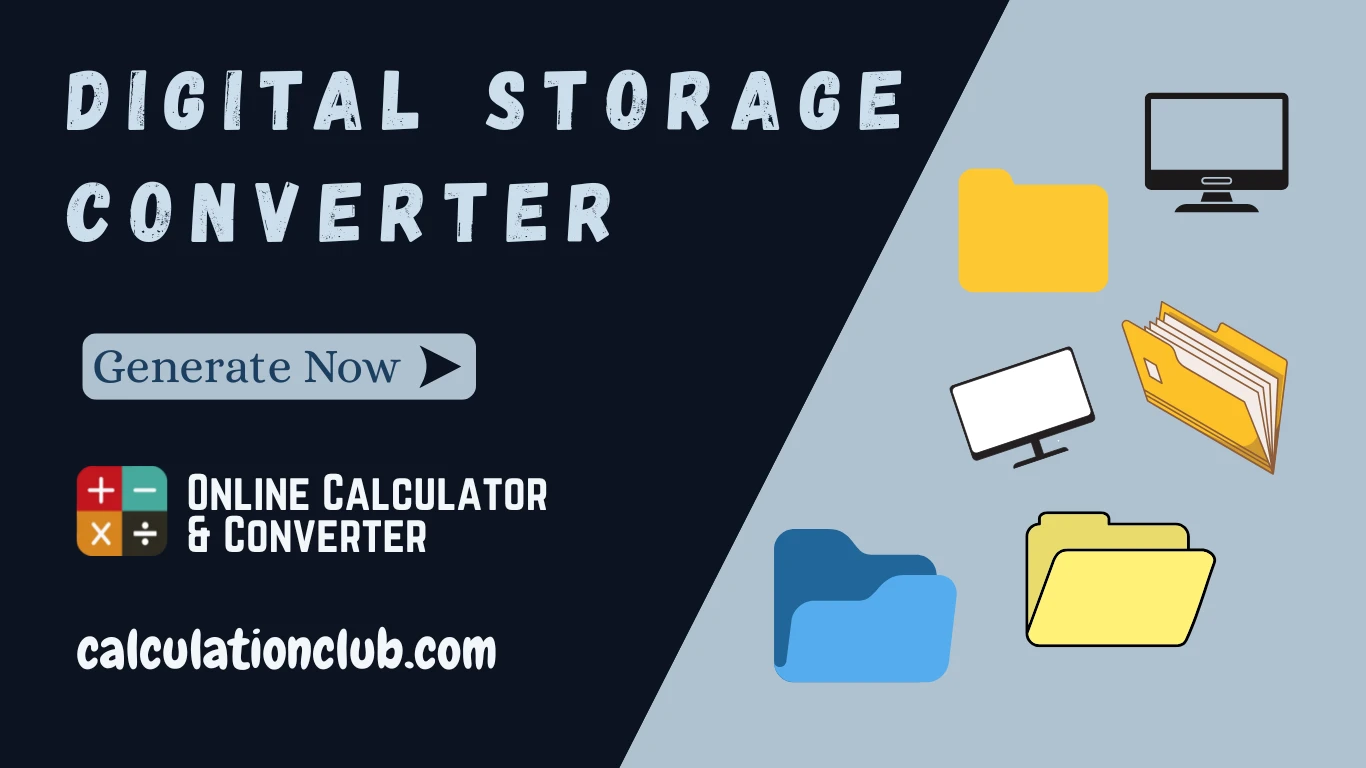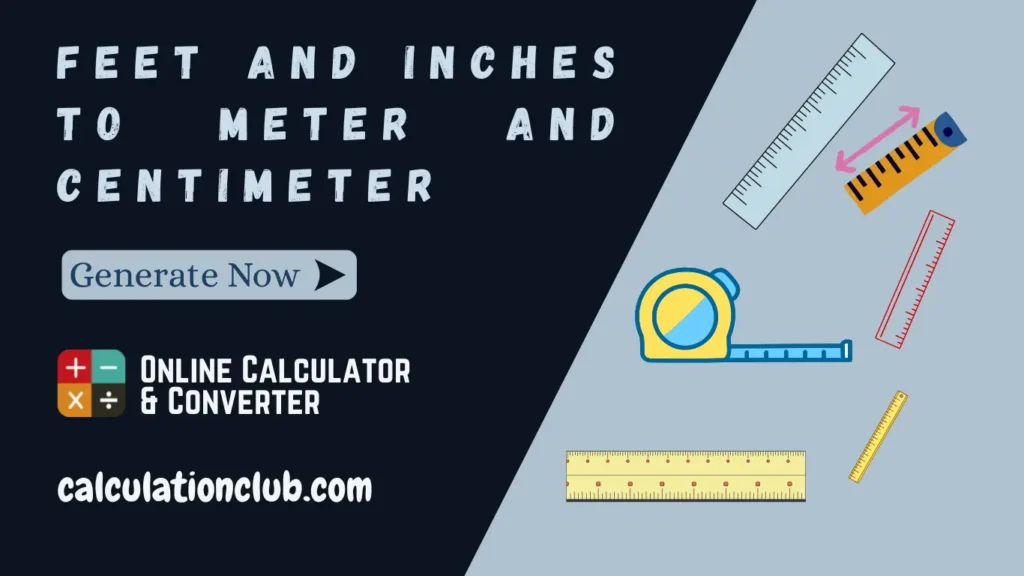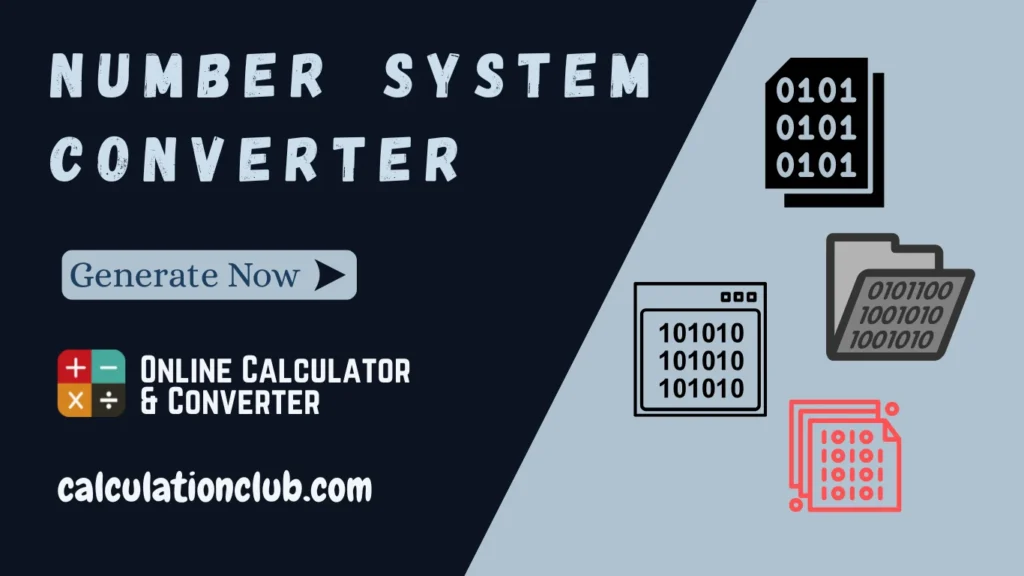Digital Storage Converter
The Digital Storage Converter is a comprehensive and user-friendly tool built to instantly convert values between a wide range of digital storage formats. Whether you’re working with Bit, Kilobit, Kibibit, Megabit, Mebibit, Gigabit, Gibibit, Terabit, Tebibit, Petabit, Pebibit, Byte, Kilobyte, Kibibyte, Megabyte, Mebibyte, Gigabyte, Gibibyte, Terabyte, Tebibyte, Petabyte, Pebibyte, our converter has got you covered. Whether you’re a software developer, IT professional, student, or curious user, this tool ensures you get precise data conversions every time—no formulas, no confusion, just instant results.
Our Digital Storage Converter supports conversions between the following 22 digital storage units—including both decimal (SI) and binary (IEC) formats:
- Bit (b)
- Kilobit (Kb)
- Kibibit (Kib)
- Megabit (Mb)
- Mebibit (Mib)
- Gigabit (Gb)
- Gibibit (Gib)
- Terabit (Tb)
- Tebibit (Tib)
- Petabit (Pb)
- Pebibit (Pib)
- Byte (B)
- Kilobyte (KB)
- Kibibyte (KiB)
- Megabyte (MB)
- Mebibyte (MiB)
- Gigabyte (GB)
- Gibibyte (GiB)
- Terabyte (TB)
- Tebibyte (TiB)
- Petabyte (PB)
- Pebibyte (PiB)
What is Digital Storage?
Digital storage refers to the amount of data that can be stored in a digital format on a device, cloud system, or memory unit. It’s measured using two main standards: decimal (base-10), used by most hardware manufacturers (e.g., 1 KB = 1,000 bytes), and binary (base-2), used in operating systems and programming (e.g., 1 KiB = 1,024 bytes).
Understanding the difference between MB and MiB or GB and GiB is critical when calculating space requirements, bandwidth needs, or storage efficiency.
Here are some common conversions:
- 1 Byte = 8 Bits
- 1 Kilobyte (KB) = 1,000 Bytes | 1 Kibibyte (KiB) = 1,024 Bytes
- 1 Megabyte (MB) = 1,000,000 Bytes | 1 Mebibyte (MiB) = 1,048,576 Bytes
- 1 Gigabyte (GB) = 1,000,000,000 Bytes | 1 Gibibyte (GiB) = 1,073,741,824 Bytes
With our Digital Storage Converter, there’s no need to manually convert between confusing binary and decimal formats. Just enter a value, and the tool provides instant, accurate results—perfect for developers, data analysts, students, IT professionals, and everyday users.

What Are the Supported Units in Our Digital Storage Converter?
Our Digital Storage Converter helps you seamlessly convert between different data units used in computing, data transmission, cloud storage, and digital media. It supports both SI units (based on powers of 10) and IEC units (based on powers of 2) for precise calculations and comparisons.
Below is a list and explanation of the supported digital storage units available in this converter:
1. Bit (b)
The smallest unit of digital information. A bit is a binary digit: either 0 or 1. All data is ultimately stored and transmitted as bits.
2. Kilobit (Kb)
Kilobit is equal to 1,000 bits. It is commonly used for data transfer speeds (e.g., Kbps).
3. Kibibit (Kib)
Kibibit is equal to 1,024 bits. This is part of the IEC binary standard.
4. Megabit (Mb)
Equals 1,000,000 bits. Often used for measuring internet bandwidth (e.g., Mbps).
5. Mebibit (Mib)
Equals 1,048,576 bits (1024²). Used in memory storage calculations.
6. Gigabit (Gb)
Equals 1 billion bits. Used for fast internet and large-scale networks.
7. Gibibit (Gib)
Equals 1,073,741,824 bits (1024³). A binary standard for data volume.
8. Terabit (Tb)
Equals 1 trillion bits. Applied in data centers and high-speed infrastructure.
9. Tebibit (Tib)
Equals 1,099,511,627,776 bits. A binary counterpart to the terabit.
10. Petabit (Pb)
Equals 1 quadrillion bits. Used in extremely large data networks and storage.
11. Pebibit (Pib)
Equals 1,125,899,906,842,624 bits. Used in high-capacity binary systems.
12. Byte (B)
One byte equals 8 bits. It is the basic unit for measuring file sizes.
13. Kilobyte (KB)
Equals 1,000 bytes. Used in general file sizing (e.g., text files, images).
14. Kibibyte (KiB)
Equals 1,024 bytes. Part of the binary measurement system used in OS memory reporting.
15. Megabyte (MB)
Equals 1,000,000 bytes. Used for images, documents, and small software packages.
16. Mebibyte (MiB)
Equals 1,048,576 bytes. Binary equivalent of MB.
17. Gigabyte (GB)
Equals 1 billion bytes. Commonly used for storage devices (e.g., flash drives, RAM).
18. Gibibyte (GiB)
Equals 1,073,741,824 bytes. Binary version of GB.
19. Terabyte (TB)
Equals 1 trillion bytes. Used in hard drives and cloud storage platforms.
20. Tebibyte (TiB)
Equals 1,099,511,627,776 bytes. Accurate binary size of high-capacity drives.
21. Petabyte (PB)
Equals 1 quadrillion bytes. Used in big data, backups, and servers.
22. Pebibyte (PiB)
Equals 1,125,899,906,842,624 bytes. Largest binary unit commonly supported in storage systems.
Digital Storage Conversion Table (Selected)
| From | To | Multiply By |
| 1 Byte | Bits | 8 |
| 1 Kilobyte (KB) | Bytes | 1,000 |
| 1 Kibibyte (KiB) | Bytes | 1,024 |
| 1 Megabyte (MB) | Bytes | 1,000,000 |
| 1 Mebibyte (MiB) | Bytes | 1,048,576 |
| 1 Gigabyte (GB) | Bytes | 1,000,000,000 |
| 1 Gibibyte (GiB) | Bytes | 1,073,741,824 |
| 1 Terabyte (TB) | Bytes | 1,000,000,000,000 |
| 1 Tebibyte (TiB) | Bytes | 1,099,511,627,776 |
| 1 Petabyte (PB) | Bytes | 1,000,000,000,000,000 |
| 1 Pebibyte (PiB) | Bytes | 1,125,899,906,842,624 |
How to Convert Digital Storage Units? – Bits, Bytes, Kilobytes to Petabytes
Digital storage units are essential for measuring data in computing, networking, and cloud storage. Understanding the difference between bits (b) and bytes (B) and the usage of SI (decimal) vs IEC (binary) prefixes helps in accurate conversions across units like KB, MB, GB, TB, and their binary counterparts like KiB, MiB, GiB, TiB. This guide explains conversion formulas with real-world examples, supporting values from bits to Pebibytes (PiB).
1. How to Convert Bits to Bytes?
There are 8 bits in 1 byte. To convert, divide the number of bits by 8. Formula: Bytes = Bits ÷ 8 Example: 16 bits ÷ 8 = 2 Bytes
2. How to Convert Kilobits to Kilobytes?
1 kilobyte = 8 kilobits. So divide kilobits by 8. Example: 64 Kb ÷ 8 = 8 KB
3. Difference Between SI and IEC Prefixes
SI (decimal) units use multiples of 1000:
1 KB = 1,000 bytes, 1 MB = 1,000,000 bytes, etc.
IEC (binary) units use multiples of 1024:
1 KiB = 1,024 bytes, 1 MiB = 1,048,576 bytes, etc.
4. How to Convert Megabytes to Bytes?
Multiply the number of megabytes by 1,000,000 (for MB) or 1,048,576 (for MiB). Example (MB): 5 MB × 1,000,000 = 5,000,000 bytes Example (MiB): 5 MiB × 1,048,576 = 5,242,880 bytes
5. How to Convert Gigabytes to Megabytes?
For decimal: 1 GB = 1,000 MB For binary: 1 GiB = 1,024 MiB Example: 3 GB × 1,000 = 3,000 MB 3 GiB × 1,024 = 3,072 MiB
6. How to Convert Terabytes to Gigabytes?
1 TB = 1,000 GB 1 TiB = 1,024 GiB Example: 2 TB × 1,000 = 2,000 GB
7. How to Convert Bytes to Bits?
Multiply the number of bytes by 8. Example: 4 Bytes × 8 = 32 bits
8. Convert Kilobytes to Kibibytes
1 KB = 1,000 bytes, 1 KiB = 1,024 bytes. So: Formula: KiB = (KB × 1000) ÷ 1024 Example: 512 KB = (512×1000) ÷ 1024 ≈ 500 KiB
9. How to Convert Terabits to Bytes?
1 Tb = 1,000,000,000,000 bits → ÷8 = 125,000,000,000 bytes 1 Tib = 1,099,511,627,776 bits → ÷8 = 137,438,953,472 bytes
10. How to Convert Petabytes to Gigabytes?
1 PB = 1,000,000 GB 1 PiB = 1,048,576 GiB Example: 0.5 PB × 1,000,000 = 500,000 GB
How to Use the Digital Storage Converter Tool – Step-by-Step Guide
The Digital Storage Converter lets you switch between 22+ storage units instantly. Follow these steps:
Step 1: Choose the Input Unit
Supported units:
- Bit (b)
- Kilobit (Kb), Kibibit (Kib)
- Megabit (Mb), Mebibit (Mib)
- Gigabit (Gb), Gibibit (Gib)
- Terabit (Tb), Tebibit (Tib)
- Petabit (Pb), Pebibit (Pib)
- Byte (B)
- Kilobyte (KB), Kibibyte (KiB)
- Megabyte (MB), Mebibyte (MiB)
- Gigabyte (GB), Gibibyte (GiB)
- Terabyte (TB), Tebibyte (TiB)
- Petabyte (PB), Pebibyte (PiB)
Step 2: Enter the Value
Type the amount you wish to convert.
Step 3: Choose the Output Unit
Select the unit you want to convert into.
Step 4: View Automatic Results
The converter updates all relevant units instantly as you type.
FAQ – Digital Storage Converter
Q1: What’s the difference between MB and MiB?
MB = 1,000,000 bytes (decimal), MiB = 1,048,576 bytes (binary)
Q2: Is 1 byte always 8 bits?
Yes, by standard definition.
Q3: How many bytes in 1 GB?
1 GB = 1,000,000,000 bytes; 1 GiB = 1,073,741,824 bytes
Q4: What is the largest supported unit?
Petabyte (PB) and Pebibyte (PiB)
Q5: Why are there two units with similar names (MB vs MiB)?
MB is based on powers of 10 (decimal), MiB is based on powers of 2 (binary). IEC introduced binary prefixes to avoid confusion.
Q6: Which is bigger — TB or TiB?
1 TiB = 1.0995 TB. So TiB is slightly larger.
Q7: Is this tool mobile-friendly?
Yes, the converter works on mobile, desktop, and tablet devices.
Q8: Can I copy the converted result?
Yes. Most tools support one-click copy functionality.
Q9: What unit is used for internet speed?
Usually measured in Megabits per second (Mbps), not Megabytes.
Q10: Can I use this for file size comparisons?
Absolutely! It’s ideal for converting file sizes between MB, GB, TB, and more.
Conclusion: Digital storage conversions are essential when dealing with data sizes in computing, file management, and system architecture. Our Digital Storage Converter supports a wide range of both SI (decimal) and binary (IEC) units, including bit (b), kilobit (Kb), kibibit (Kib), megabit (Mb), mebibit (Mib), gigabit (Gb), gibibit (Gib), terabit (Tb), tebibit (Tib), petabit (Pb), pebibit (Pib), byte (B), kilobyte (KB), kibibyte (KiB), megabyte (MB), mebibyte (MiB), gigabyte (GB), gibibyte (GiB), terabyte (TB), tebibyte (TiB), petabyte (PB), and pebibyte (PiB). Whether you’re calculating bandwidth, disk space, or memory size, this tool delivers fast and accurate conversions for any digital storage unit. Try it today!
My Request to All: If you enjoy using our Digital Storage Converter tool, please consider sharing it with friends and colleagues. For any questions or feedback, feel free to join us:
Telegram Group – CalculationClub Telegram Group
YouTube Channel – CalculationClub YouTube Channel
Explore more calculators and tools at: CalculationClub
Tools in Hindi: Meter to Feet
Thank you for your support!


